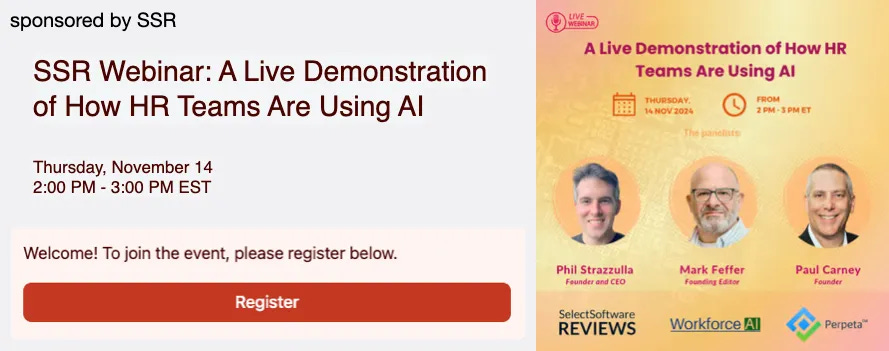Fundamentally Annoying
Bud Caddell | Collaboration Overload | Factoids | Elsewhere, Elsewhen
I have a brewing belief that working together with other people is fundamentally annoying, friction-full, and messy. Inherently. And it's better to surrender to that reality than invent all manner of games to try to obfuscate that reality. So much of what passes as wisdom on this platform [LinkedIn] in terms of process, systems, dogma, etc. are people desperately trying to resist the reality of human collaboration.
Maybe the essence of collaboration is annoyance. And maybe that's ok. Maybe we can work with annoyance and move on.
Ok, maybe. But perhaps some subset of all working people — bad bosses, sociopaths, takers — are responsible for 80% of the friction and anger at work, and everyone else causes only 20% of the messiness and pettiness at work. I’d even bet it’s reflexive: 20% of people cause 80% of the heartburn and burnout at work, and the remaining 80% suffer and flex as best they can, keeping their heads down and hoping for something better: a new way of working.
However, I believe that such a new way of work will require changing the world outside the walls of business, not just goes on inside.
What Makes Work So Annoying? Collaboration Overload.
A group of researchers — Rob Cross, Scott Taylor, Deb Zehner — make their well-supported claim that even back in 2018 companies were pushing employees to unprecedented levels of what we all think of as collaboration. Email, work chat, live video calls, and plain old phone calls. Rob Cross (and others) called this Collaborative Overload in 2016, even prior to this more recent article, How to Collaborate Without Burning Out.
The result of this amplified communication environment is less time for everything else:
Along with all this comes significantly less time for focused individual work, careful reflection, and sound decision making.
[…]
Most managers now spend 85% or more of their work time on e-mail, in meetings, and on the phone, and the demand for such activities has jumped by 50% over the past decade.
This increased demand for sniffing the pheromone trail in the office has become the background radiation for our work culture.
We found that always-on work cultures, encroaching technology, demanding bosses, difficult clients, and inefficient coworkers were a big part of the problem, and most of those challenges do require organizational solutions. But we discovered in many cases that external time sinks were matched by another enemy: individuals’ own mindsets and habits. Fortunately, people can overcome those obstacles themselves, right away, with some strategic self-management.
Alas, they authors use their telescopes to focus inward on individual contributors rather than taking the organization and it leaders for creating such a noisy, demanding world of work. Just as many commentators have done for burnout. But their prognosis feels more like a telescope, taking in a big picture:
We uncovered best practices in three broad categories: beliefs (understanding why we take on too much); role, schedule, and network (eliminating unnecessary collaboration to make time for work that is aligned with professional aspirations and personal values); and behavior (ensuring that necessary or desired collaborative work is as productive as possible). Not all our recommendations will suit everyone: People’s needs differ by personality, hierarchical level, and work context. But we found that when the people we studied took action on just four or five of them, they were able to claw back 18% to 24% of their collaborative time.
18% to 24% is a chunk.
Perhaps the single most useful insight is this:
Knowing why you accept collaborative work—above and beyond what your manager and your company demand—is how you begin to combat overload.
And why do we?
Much overload is driven by your desire to maintain a reputation as helpful.
So it is our inclination to buttress a reputation for helpfulness that is the seed of personal collaborative overload. An echo of the Buddhist principle that suffering is caused by desire?
So what can we learn from those that balance the demand for our time?
Efficient collaborators remember that saying yes to something always means saying no to—or participating less fully in—something else.
Small slices of time that could be applied to center-of-the-target activities are frittered away on less-than-essential meetings, calls, and favors. We need to protect our time, so it can be applied toward big things:
Small wins are not always important ones.
Eliminating the unnecessary' means regaining control of your agenda, each clarifying 'their 'north star' objectives —the strengths they want to employ in their work and the values they want to embody, in the context of their organization’s priorities—and then streamline their working lives in a way that buffers them against nonaligned requests.'
This also requires resetting others' expectations about your north star commitments, and therefore your reluctance to take on involvement outside that domain. Also carve out regular time for reflection and to foster collaboration with others to help you work toward those goals.
And when you aren’t in control?
Another leader described the shift like this: “Playing defense sucks. You are always reactive and living in fear. The only way to escape it is to get clarity on who you are and what you want to do and start forging a path and network that enable you to get there.
Low-hanging fruit at the group level, like these thoughts:
Poorly run meetings are the biggest time sink in organizations.
Make sure meetings are needed, provide all materials necessary to understand the context to the meeting in advance, and if necessary adopt the Amazon system that allocates time at a meeting’s start to read material needed.
Institute or encourage new norms for e-mails — shorter, more concise, etc. -- and apply asynch tools instead of meetings and calls. And conversely, use a call or meeting to resolves some dangling decision.
Think of these as forming a triage:
Efficient collaborators decide when they do, or don’t, have unique value to add.
And in each one-on-one try to determine how to make best use of your own and your counterpart's time. Use this:
So that I use your time well [and silently, my own], would you quickly let me know what you hope we can accomplish together?
Smart collaborators network to find others who can help in their ‘north star’ efforts:
When it comes to building your network, focus on the quality of the relationships, not the number of connections.
Remember Ronald Burt's 'structural holes', that says people at the edge of network groups, whose position in the network leads to benefits on either side of a otherwise divided or disconnected community, develop the greatest social capital. Social capital is what we use to get things communicated, supported, and accomplished. So what matters is where you are in the network, not how many connections you have.
And, the researchers remind us to accept that this is a long game:
The recent explosion in the volume and diversity of collaborative demands is a reality that’s here to stay. Unfortunately, the invisible nature of these demands means that few organizations are managing collaborative activity strategically. So it falls to you, the individual, to fight overload and reclaim your collaborative time.
Cross, Taylor, Zehner are making a backhanded case for the organization as a whole and its leaders to think these thoughts and inculcate these practices, including training people to encourage and apply these principles at all social scales: the individual, small and large groups, and the entire firm. But they say companies are not approaching this strategically, so each person has to fight their own tactical guerrilla war against collaborative overload.
No wonder that Bud Caddell believes work is fundamentally annoying.
Factoids
Wild country.
Of the world’s wild country, roughly 70 percent lies in just five nations: Russia, Canada, Australia, the United States and Brazil.
…
Cars, cars, cars.
Holding all other factors consistent, doubling a city's income is associated with 37% more car journeys.
Rich people don’t walk, ride bikes, or take public transportation.
…
Parenting is hazardous to your health.
According to a recent Daily podcast, 71% of parents report that parenting is more stressful than ever before. So much so that even the U.S. Surgeon General has declared parenting a significant health risk.
A role foundational to humanity's very existence—alongside eating and sleeping—is now so burdened with stress that it's become a mental health crisis. In fact, modern parenting makes us so miserable that an increasing number of people are deciding not to have children at all.
If I were young, I wonder if I would have children, now?
Elsewhen
Transparency versus Innovation.
In The Transparency-Privacy Balancing Act (2023), I look into research that shows workplace transparency is known to improve employee engagement. But without incorporating privacy, it can leave employees feeling exposed, and hamper innovation.
…
A new economic agenda.
I wrote this in 2019.
In Amazon Fight, Progressives Showed What They Want: A New Economic Agenda | Patricia Cohen presents what starts as a lame, ‘he said, she said’ middle-ground recap of the Amazon HQ2 mess, but winds up hitting pay dirt when she touches on the third rail of the progressive argument, which is that massive handouts to incredibly rich companies attracted to cities because of their existing infrastructure, culture, and human capital are wrong. And secondly, 20th century 'growth' -- economic development -- of the sort that Di Blasio and Cuomo were trying to sneak into place without much civic involvement is not going to fly. Progressives want a new economic agenda that will also detail what is sustainable and progressive urban economic development.
Cohen writes:
Democrats on the left are also floating ambitious proposals like free college for all, a federal job guarantee, an industrial plan to retool the country’s energy use and higher taxes on the wealthy.
The groundwork for these ideas was prepared in recent years by a network of liberal economists, thinkers and activists at research organizations and universities interested in developing a set of policies to displace supply-side economics and trickle-down theory.
“The interaction between market and collective action is what leads to our prosperity,” said Joseph Stiglitz, a Nobel-prize winning economist who is coming out with a book about growing the economy in the 21st century. Advances in science and technology, for example, rest on basic research that was first funded by the government and then brought to market by the private sector.
Mr. Stiglitz argues this is the kind of alternative explanation of how growth occurs that the Democratic Party needs to offer more vocally. Souped-up competition, lower taxes on the wealthy and hands-off financial regulation, he maintains, have failed to deliver on their promise to supercharge the economy and broadly lift incomes.
And that's what the HQ2 project represents. Just take a look at Seattle, and San Francisco.
Reflecting on the recent research of David Autor and other economists, what HQ2 would done was to increase economic inequality in the city. The great majority of the hypothetical 25,000 Amazon jobs would have gone to college-educated 'frontier' jobs (using Autor's term for highly skilled, high demand work), and a supporting work force of low-skilled support jobs in service work, like restaurants and security guards, and a moderate lift in 'wealth' jobs (supporting the needs of the affluent). The higher paying, middle-skilled jobs of the 20th century, that made cities a way for non-college-educated workers to fight their way into the middle class is going, going, gone. And Amazon HQ2 would not have helped that.
So we need an economic agenda that will.
Keep reading with a 7-day free trial
Subscribe to workfutures.io to keep reading this post and get 7 days of free access to the full post archives.



